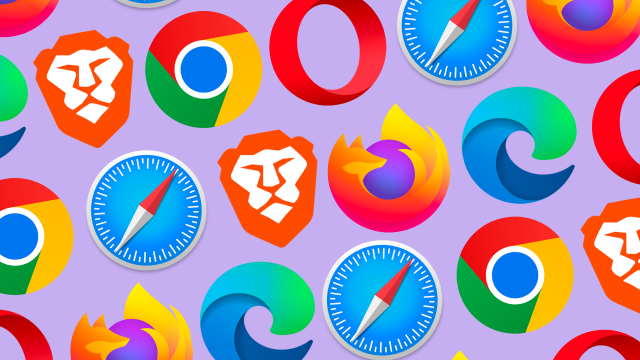The humble browser remains the most-used app on many computers, and every second it saves you is invaluable. The days of slow and laggy browsers are long gone now, and most web browsers offer a satisfactory performance, but some are (obviously) a lot faster than others. We set out on a mission to figure out which browser is the fastest for your Windows computer, and the results were a bit surprising.
How we tested the fastest browsers
Before we share the results, here’s the lowdown on how we tested these browsers for speed. We used the web-benchmarking tools Speedometer, JetStream, and MotionMark to determine which browsers are the fastest. Speedometer measures how responsive your browser is while running web applications, and JetStream is a JavaScript-focused benchmark that assigns higher scores to browsers that can start and execute code quickly. MotionMark is a graphics benchmark that tests the browser’s ability to render complex web pages.
We’ve given slightly higher weightage to Speedometer in the final results because it simulates real-world interactions with websites and includes tests like the time taken to add items to a to-do list. This is most likely to impact your day-to-day usage of the browser.
We ran all the benchmarks in a new incognito window in the browsers and disabled all extensions before doing so. All of the browsers were updated to the latest available versions before we ran the tests. We also ran the benchmarks twice on each browser to ensure the results were consistent and devoid of unusually high or low scores. After running the tests twice, all browsers returned nearly identical benchmark scores.
To run these tests, we used a Zotac Magus EN 1070 PC with Windows 10 Pro. The PC has 8GB RAM, an Intel Core i5 5,806 T processor, and a 120GB SSD.
Browser benchmark results also depend on the hardware, so if you run the same tests on your computer, you will see different scores, but the results should be similar to ours.
Google Chrome: the fastest browser for most people
Chrome has always been fast and in our test, it topped the Speedometer benchmark test with a score of 107.2. It finished a close second place in the JetStream test by scoring 99.778, which is also impressive. It finished third in the MotionMark test by scoring 449.23, which means it lags behind other browsers when rendering complex web pages.
Chrome scores very well in most browser tests, and also lets you access a highly mature ecosystem of browser extensions to add many useful features to Chrome. On the flip side, Chrome is owned by Google, whose business model is tracking its users and serving them targeted advertisements. You should look at alternative browsers if you care about your privacy and change a few Chrome settings immediately.
Brave: a fast browser with built-in adblocking
Brave finished a close second in our test of the fastest browsers on Windows. It scored 106 to take the runner-up spot in the Speedometer test and even managed to beat Chrome to the crown in the JetStream test by scoring 100.002, and in the MotionMark test, with a score of 453.29.
Although Brave claims to be a privacy-friendly alternative to Chrome, it has had its share of controversies. It is a fast browser with built-in adblocking, and that alone makes it a good alternative to Chrome, but its controversies make it hard to unquestioningly believe all its privacy claims.
Microsoft Edge: best for heavy workloads
Edge’s switch to Chromium has allowed it to become really fast. The browser finished third in two of our tests, with scores of 99.5 in Speedometer, and 99.071 in JetStream. However, it was the top scorer in the MotionMark test with an excellent 479.30.
The tests make it clear that Edge is your best bet for graphics-intensive websites and heavier workloads on the web. While Edge keeps getting better, it does have an incredibly complex context menu (visible when you right-click inside the browser) that makes it hard to find the option you need quickly. It’s also not the browser you want if your first priority is privacy.
Opera: Not the fastest, but has additional features
Opera finished fourth in all of our tests. It scored 90.1 in Speedometer, 95.914 in JetStream, and 415.26 in MotionMark. These aren’t bad scores, but they’re a fair bit behind the fastest browsers in the world.
Just like all the other browsers mentioned so far, Opera is also Chromium-based. It has additional useful features, such as integrations with Facebook Messenger, WhatsApp, and music streaming services like Spotify and Apple Music. These features may make it worth using over the alternatives but be aware that Opera includes some sponsored content that you should consider disabling, and it’s not the most privacy friendly browser out there either.
Firefox: slow, but more private
Unfortunately, Firefox finished dead last in all of our tests. It scored just 77.48 in Speedometer, 62.475 in JetStream, and 222.78 in MotionMark. Firefox is the only non-Chromium browser in all of these tests, which may explain some of these results.
However, Firefox, with a few setting adjustments, can become a secure and private browser. That, and its excellent add-on ecosystem, make it stand out.
A word about Safari
Since Safari is a Mac exclusive browser, it didn’t make sense to include it in this browser shootout. We had access to an M1 Mac Mini for a short while, and we ran these benchmarks on Safari on that machine. Since the Mac Mini with Apple’s M1 processor is a much more powerful machine running on a completely different OS, the scores cannot be compared with the results of our tests.
However, Safari did end up scoring very well in these benchmarks. It scored 1658.44 on MotionMark, 256 on Speedometer, and 193.778 on JetStream. If you have a Mac, Safari hits the sweet spot between speed, features, and power efficiency.
This article has been updated since it was first published.
